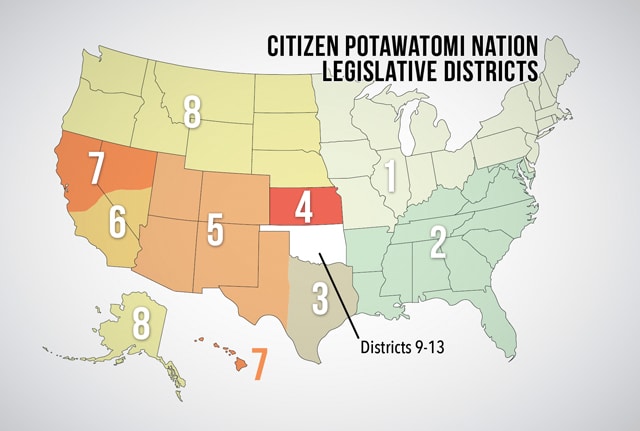
Citizen Potawatomi Nation boasts one of the country’s only digital tribal governments, allowing representatives from across the U.S. to meet via teleconference and conduct legislative meetings in real time. As with all things technological, the time has come for the video and teleconference technology to be upgraded. The Hownikan talked tech with Tribal member and longtime CPN Information and Technology Systems Manager Christopher Abel about the planned upgrades.
What kind of system do we currently have for the CPN legislative meetings?
“The current system we have been using is a Tandberg Teleconferencing unit with the central system residing here at the Tribal headquarters. Essentially, you’re having a 16-person video conference with eight people in Oklahoma and eight more spread around the country so they can represent the Potawatomi living outside the state.”
Why upgrade the system as it works now?
“The purpose of upgrading our system is to create an easier way to plan and conduct the Tribe’s legislative meetings.
“Currently, if a member of the Legislature cannot attend, the meeting moves on without them. With the new system being entirely web based, if a legislator is unable to attend the meeting or unable to get to their district office, they will be able to attend through the use of a wireless Verizon device and their laptop.”
You’re a longtime employee and Tribal member. Why do you think it’s important to have a digital meeting place that this kind of system provides?
“I see the use of digital meeting places to have immeasurable value. For the business, it gives parties involved a way to communicate over great distances if required. This increases the ability to collaborate and plan.
“For the Legislature, it allows the Citizen Potawatomi Nation a way to give true representation from each of our eight districts in our legislative process without the need to spend valuable funds on transportation to and from the home of the Tribe in Shawnee, Oklahoma. It gives our legislators a way to conduct the business of the Tribe without having to take them away from their families. Because our Tribe is a family in itself, this ideal of keeping our legislators close to their families is something we embody ourselves.”
